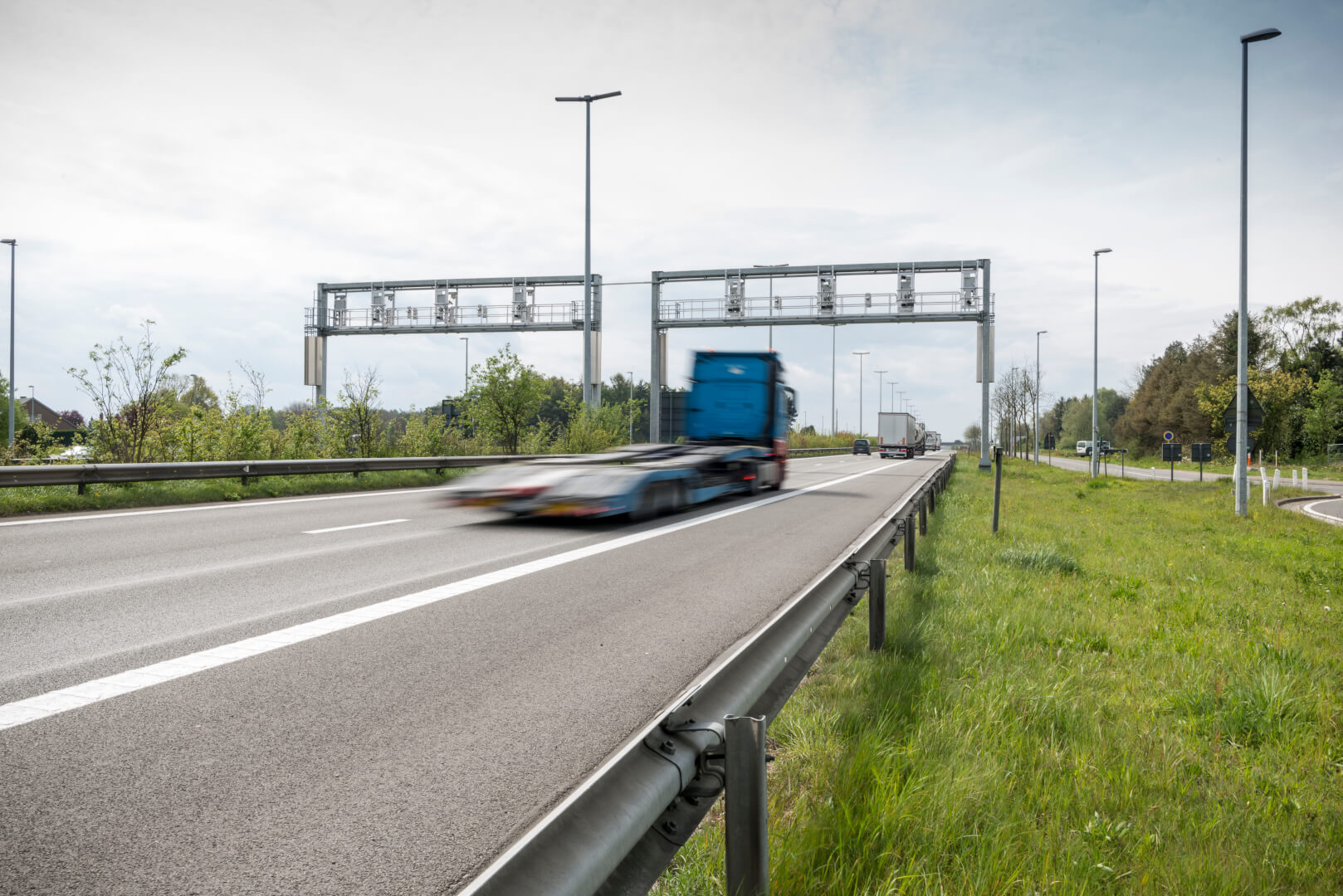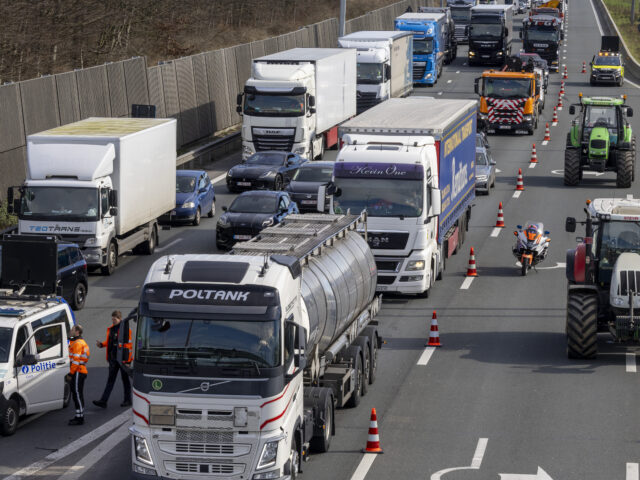The kilometer charge for trucks offsets the Flemish Region’s loss of revenue due to the greening of traffic taxes. This is according to an analysis of 15 years of Flemish fiscal policy by SERV, the consultation and advisory body of Flemish employers’ and employees’ organizations.
Over the past three legislatures, traffic taxes in Flanders have been greened in several steps, encouraging lower CO2 emissions and electrification. As a result, revenues from the annual traffic tax have fallen by almost a quarter, from 0,26% of gross domestic product (GDP) in 2009 to 0,2% in the budget submitted for 2024. At the same time, receipts from the circulation tax fell by almost a third, from 0,06% to 0,04% of GDP.
Revenues from the annual circulation tax and tax on inward transportation will still fall significantly in relation to GDP if the policy remains unchanged, given the expected further electrification of the Belgian car fleet in the coming years. This mainly concerns the full tax exemption for EVs.
Rising kilometer charge for trucks
However, SERV notes that the decline in traffic tax receipts is, for the time being, fully offset by the introduction of the kilometer charge for trucks. Under this charge, owners of trucks heavier than 3.5 tonnes have been paying a charge for using Belgium’s motorways and certain regional and municipal roads since 2016.
SERV expects that these revenues, which have already risen sharply in recent years due to the rate reform in 2020 and the expansion of the toll road network in 2024, will continue to do so based on current forecasts due to, for example, growth in the number of kilometers driven and annual indexation.
From 1 July, those rates in Flanders and Brussels will be increased by an indexation of approximately 3%. Emission-free trucks will escape the more expensive rates. Starting in July, they will no longer have to pay kilometer charges in the Brussels Capital Region. This is to encourage the greening of logistics transport.
€199 per capita
According to the 2024 budget, Flanders extracts 2,16 billion euros (or 29,1% of the total regional tax) from mobility. For 2028, SERV expects this to be 2,25 billion euros, of which 812,8 million will come from the kilometer charge for trucks (compared to 720 million in 2024).
Thus, Flanders derives more revenue from mobility taxes per capita than Brussels and Wallonia due to both more registered vehicles and more kilometers driven by trucks. On a per capita basis, the figure in Flanders is 199 euros. That is also considerably higher than in Germany (114 euros) and France (61 euros) but a lot lower than in the Netherlands (431 euros).
In this respect, Flanders taxes much more than its neighbors on the recurrent charges for owning or using a car (the annual road tax), while in the Netherlands, in particular, the bulk of the charges are for registration. As for France, it is still important to note that road tolls are not considered tax revenues, even though tolls generate a lot of funds to maintain the motorway network.
Introducing an intelligent kilometer charge for light vehicles, such as passenger cars, could be an essential part of the mobility solution. After all, rising car traffic is causing increasing congestion and environmental pollution. But for now, it does not look like the topic will arise in the ongoing government negotiations because N-VA – the party in charge – is not in favor.




Comments
Ready to join the conversation?
You must be an active subscriber to leave a comment.
Subscribe Today